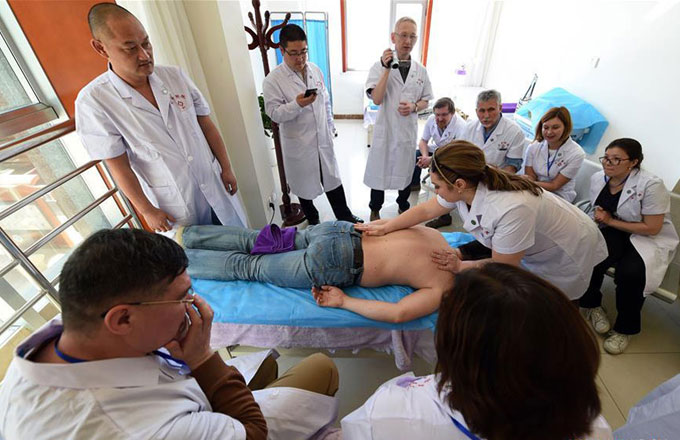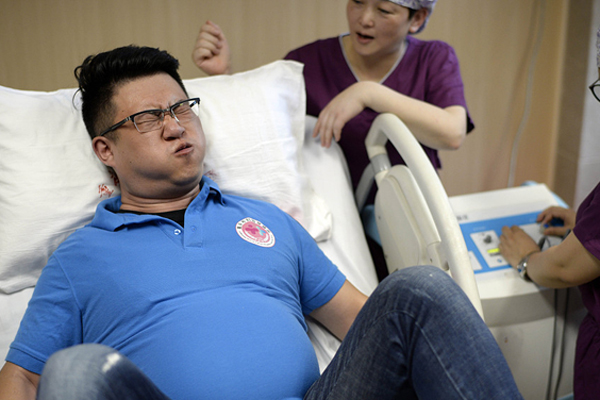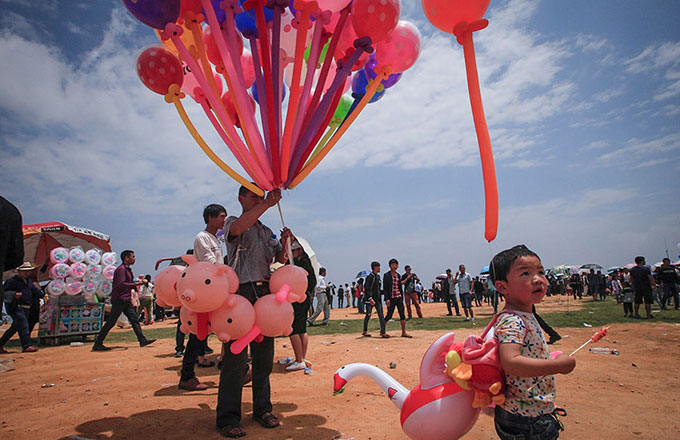Cases of H7N9 resistant to drugs
Preventive strategy stays despite Chinese scientists' new findings
Measures taken against H7N9 bird flu won't be changed despite the first cases detected of the virus proving resistant to recommended treatment with Tamiflu or similar antiviral drugs, a senior health official said on Wednesday.
Feng Zijian, director of the health emergency center of the Chinese Center for Disease Control and Prevention, was speaking to China Daily after the discovery by Chinese scientists.
The latest findings, published in an article in The Lancet medical journal on Wednesday, show that three seriously ill patients with H7N9 did not respond to medication, including Tamiflu.
The World Health Organization recommends the antiviral drug as a standard treatment against infection.
The findings also emerge as a second H7N9 case was reported in Beijing, involving a 6-year-old boy.
The ease with which antiviral resistance is emerging in the H7N9 virus is of concern, the article states, adding that the situation should be monitored closely and considered in response plans to future pandemics.
Feng said, "We have systematic and close surveillance over the viral activity of H7N9, including potential drug resistance, and so far such cases reported have been quite individual."
Most strains of the H7N9 virus are still sensitive to Tamiflu, he added, saying there is no need to panic.
Wen Yumei, professor at the Medical College of Fudan University and team leader of Shanghai's H7N9 prevention and treatment experts, said treatment with Tamiflu is still proving effective for most patients. Treatment should be started as early as possible after diagnosis.
She said that as Tamiflu resistance has been found in severely ill patients, especially those depending on artificial breathing apparatus during advanced stages of illness, close monitoring of the severity of viral infection before and during treatment with Tamiflu is needed to help fine-tune treatment.
Feng agreed, saying: "So far, we have not detected a changing trend or obvious mutations of the virus, which could infect both birds and humans, and the number of cases in the country has dropped a lot compared with April."
Li Xingwang, a veteran infectious disease specialist at Beijing Ditan Hospital, said he is aware of the latest findings of drug resistance. Further studies are needed to guide future clinical treatment.
"At the moment, Tamiflu is still among the limited reliable treatments for H7N9 infections," he said.
No new H7N9 bird flu cases were reported on the mainland from May 20 to 26, the Chinese National Health and Family Planning Commission said on Monday.
But Beijing health authorities reported a second H7N9 case in the capital on Tuesday.
A six-year-old boy from Haidian district developed symptoms including fever and headache on May 21 and was sent to a hospital that day, according to a statement from the Beijing Health Bureau on Tuesday.
His temperature returned to normal two days later and he returned to kindergarten the next day, the statement said. He is now doing well and his temperature has been normal for five days. None of the boy's 50 close contacts showed any flu symptoms. The boy was not treated with Tamiflu.
Experts with the Beijing Centers for Disease Control and Prevention said new sporadic cases are likely to occur but the outbreak is expected to wane.
Feng said children infected with the virus usually develop mild symptoms, and some recover without medication.
According to a recent report on H7N9-related clinical findings published on the website of the New England Journal of Medicine by clinical experts from 30 hospitals on the mainland, males and the elderly are more likely to become infected.
Of the 111 patients investigated, all had fever and more than 90 percent developed coughs, it said. Twenty-seven percent of the patients studied died.
Xu Junqian in Shanghai contributed to the story.



















